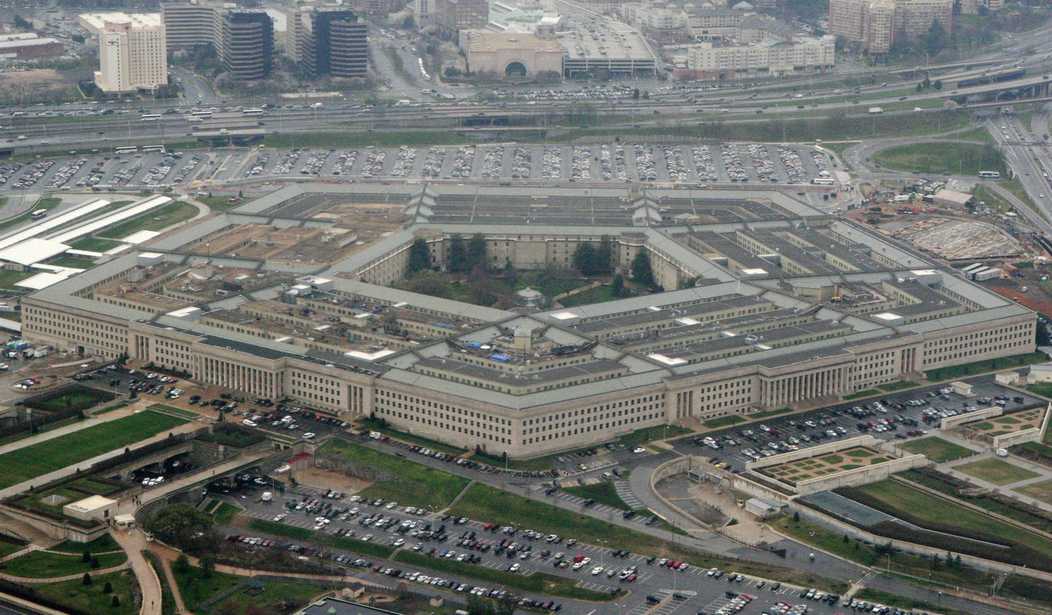While Congress is drafting the National Defense Authorization Act (NDAA) for the next year, they need to make sure that the Ground-based Midcourse Defense (GMD) program, the only technology that is capable of protecting the homeland from intercontinental missile attack, is protected and enhanced. The NDAA is the annual bill that authorizes defense levels for the next year.
There will be pressure for cuts as part of the debate over the future of Pentagon spending, but the House and Senate Armed Services Committees should resist any ideas that will create the view that America’s national defenses of the homeland are weakening.
The Senate is starting the process of drafting this important bill soon and the House is expected to follow in a few weeks. Defense News reports, “The Senate Armed Services Committee will mark up its annual defense policy bill the week of June 8, mostly in closed sessions.” That markup is going to be the best opportunity to focus on protecting America from unwise decisions that will leave America unprotected from emerging threats from North Korea and other military adversaries.
The funding challenges are obvious. The national debt is over $25 trillion and the debt for this year alone is expected to end up at about $3.7 trillion. With the pressure to respond to the coronavirus pandemic, and economic downturn as a result of the crisis, there is going to be pressure on Congress to find cuts to spending. Specifically, there will be pressure on the Pentagon to find cuts to shift over to coronavirus related spending, yet it would be shortsighted to cut spending for GMD when our adversaries are looking for weakness from the U.S. government and an opportunity to leverage military superiority.
Progressives in the House are pushing for massive cuts to defense spending to be shifted to domestic programs. A letter addressed to the Chairman and Ranking Member of the House Armed Services Committee was signed by 29 House Dems, including Squad members Reps. Alexandria Ocasio-Cortez (D-NY) and Rep. Ilhan Omar (D-MN), made the case “in order to reopen our nation in a data-driven, safe manner, we need to focus our spending efforts on the millions of additional coronavirus tests and tens of thousands of additional contract tracers we will need, as well as covering treatment costs, developing therapeutics, and distributing future vaccines.”
Recommended
It is true that the federal government needs resources to increase testing and to push for a vaccine, yet it could create an even bigger threat to American life if the U.S. showed weakness and left our missile defenses underfunded at a time when our nation is being tested.
Many nations are using the coronavirus perceived U.S. weakness to test the resolve of the Pentagon. Iran recently threatened the U.S. Navy with gunships and has increased threatening rhetoric coming from the government. North Korea has been pushing towards a more advanced nuclear weapons and ballistic missile program during this health crisis, while flouting United Nation’s sanctions on luxury goods and imported fuel. This week, armed Russian fighter jets buzzed a U.S. Navy patrol jet in a very dangerous manner in way that puts the whole world in danger of open hostilities between the U.S. and Russia that could escalate quickly. These are all tests of American resilience in the face of the coronavirus.
The Pentagon has been a problem, because they have been schizophrenic over the past year in the level of support for this missile defense program. On one hand, Michael Griffin, Undersecretary of Defense for Research and Engineering, attempted in August of last year to completely cancel the program. In December of last year, the Pentagon awarded a contract modification that increased the value of the contract of that same program. The White House has been supportive of the program and President Donald J. Trump has repeatedly stated his support for a strong national defense and promised to update our missile defense infrastructure.
The slightest evidence of American weakness will inspire our opponents to ratchet up the tests of our resolve. The mere perception of American weakness and vulnerability is dangerous and will have global implications that cost far more than the GMD program. Congress has an opportunity with the NDAA markup to strengthen our national defense while finding some resources in the Pentagon budget to help with the coronavirus response.
Weakening missile defense at this time is insanity and will create even more problems, and sleepless nights, for American citizens.
























Join the conversation as a VIP Member